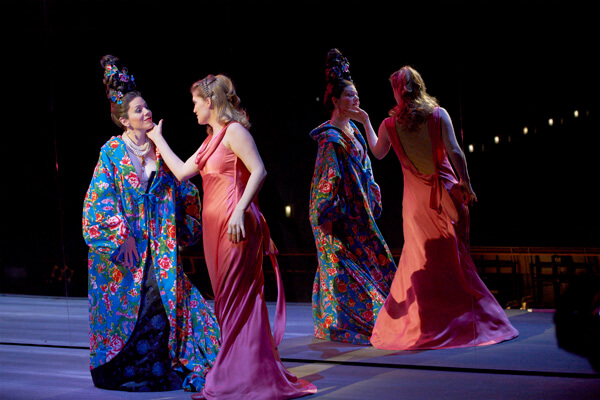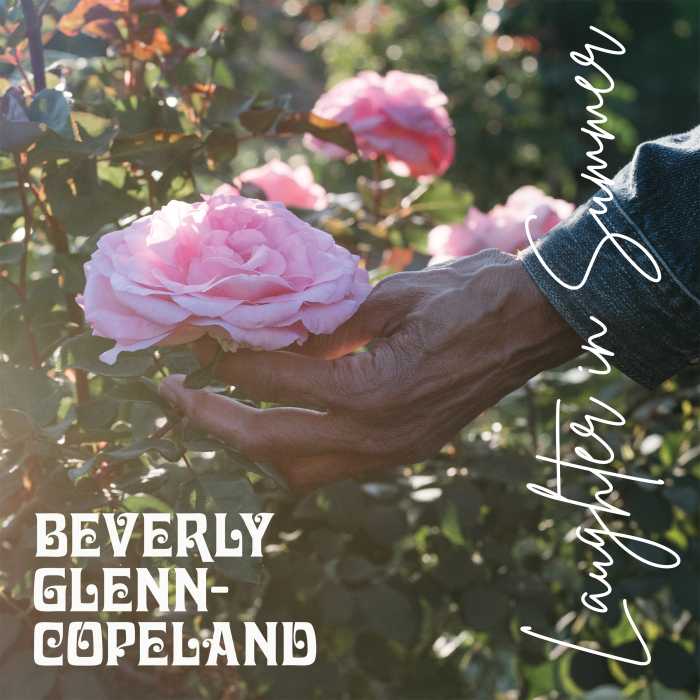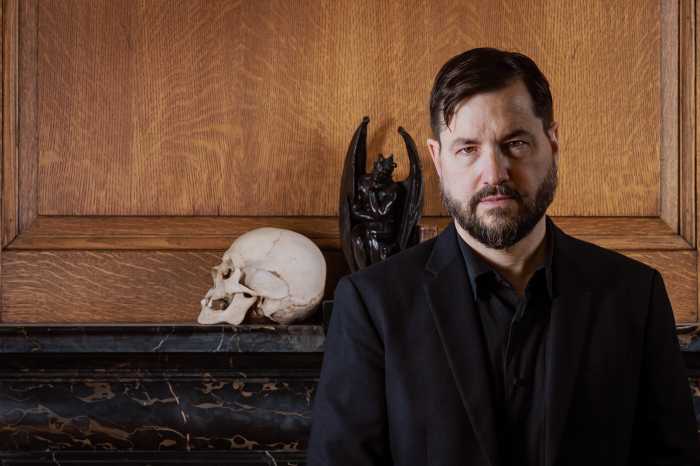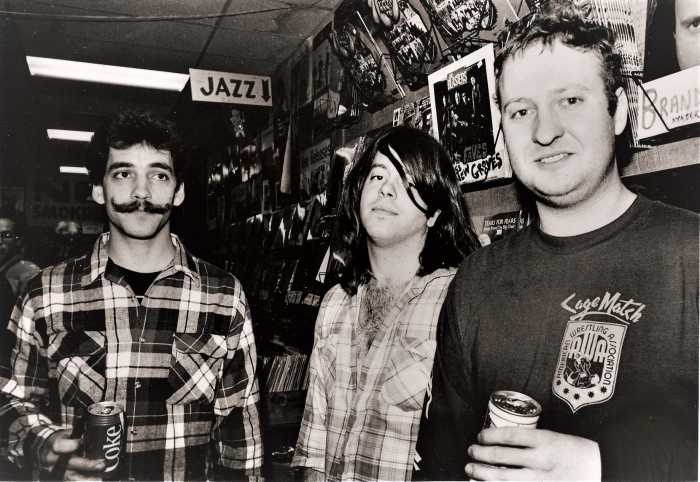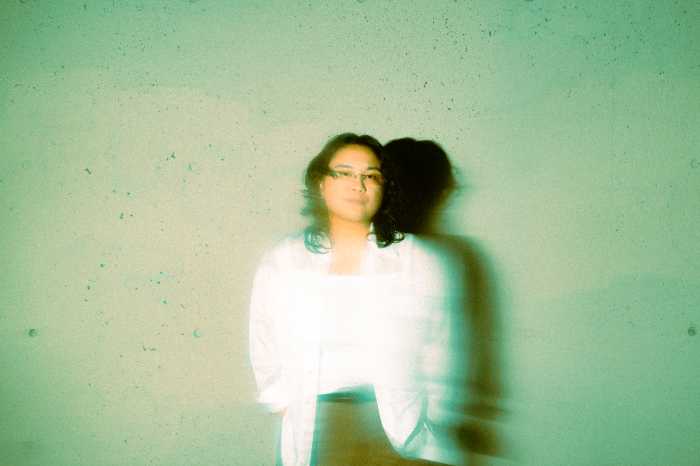Since my last visit to fabulous, gay-friendly Toronto, the Canadian Opera Company moved into the spectacular, comfortable Four Seasons Centre. Acoustics are certainly improved from its impossibly huge former venue. Though both conductors I heard were problematic — Andrew Davis overwhelming singers in a Zemlinsky/ Puccini double bill (May 15) and Rinaldo Alessandrini, delightful on recordings, sadly foursquare in Handel’s “Semele” the following day — the orchestra itself affirmed its fine quality.
The unifying idea behind Catherine Malfitano’s staging of “Eine florentinische Tragödie” and “Gianni Schicchi” was that both 1917 works are Florence-set. A single set obtained — with 1920s trappings for Zemlinsky, more or less current stuff for Puccini. Many details of set, dress, and behavior contradicted this frame, notably the 1990s style “power couple” photo of Simone (Alan Held) and Bianca (Gun-Brit Barkmin) dominating their living room.
The Wilde-based moral (immoral?) tale is basically an anecdote — a mercantile couple’s flagging lust rekindles when the husband kills the wife’s princely lover Guido Bardi (Michael Koenig). Malfitano had the singers either clump about expressionistically or stand and glower; no tension accumulated. After several hearings, I ascribe that to the work, which surely works best in concert form. At that, the orchestration is what impresses; only the final couplet of lines offer memorable melodic contour.
Held fared best, animating the crafty old trader’s utterances and (usually) making himself heard impressively over the storms Davis unleashed. Koenig delivered solidly. Barkmin, in Louise Brooks garb and bob, sang with conviction but rather ordinary tones. Skulking about felinely and simulating orgasms every few minutes, she seemed to channel Malfitano’s Salome and Lulu characterizations simultaneously.
The diva-cum-director handled “Schicchi” better, where Held provided a very ingratiating star turn. But TV-based “comic” attitudinizing was the directorial mode, with singers scampering around and singing atop Wilson Chin’s set, a towering furniture pile. René Barbera’s Rinuccio sounded very healthy indeed, and Donato di Stefano (Simone, in classy casting) and studio member Philippe Sly (Notary) were outstanding.
“Semele” proved deeply frustrating in a manner increasingly common. A director — here, Chinese artist Zhang Huan, an exhibit of whose impressive work graced the Art Gallery of Ontario — undertakes a first opera and responds to their own personal mythology, not the work. Zhang’s main contribution to “Semele” was the rebuilding of an ancient Chinese temple as its set, with the overture accompanied by a mini-documentary film detailing the family and career problems of those previously living there. After that, their story was dropped. Various sorts of pan-Asian iconography and devices appeared, a striking but strikingly misplaced melismatic Chinese song trumped Act One’s rousing finale, and — mystifyingly — two sumo wrestlers gruntingly battled through “Bless the glad earth.” A phallic donkey cavorted unamusingly.
Evidently neither director nor conductor understood English well enough to invest in William Congreve’s brilliant libretto — sexy, funny, and moving. The cast, quite fine, seemingly fended for themselves — especially Jane Archibald, an expert vocal technician ideally voiced for Semele’s music, who looked right but miscalculated the rapacious princess. She might as well have been playing the unselfish virgin Iphis in “Jephtha.”
William Burden’s handsome Jupiter was a paragon of line and verbal articulation — an achievement given Alessandrini’s unresponsiveness. Rather tight of production initially, he still sang much of his music exquisitely.
Mezzo Allyson McHardy had fun with the Ino/ Juno pairing and sang everything but her last aria stylishly and well. Katherine Whyte’s lively Iris contributed more than Steven Humes (Cadmus/ Somnus), a fine bass but no Handelian. Anthony Roth Costanzo moved heaven and earth to maximize what was left him of Athamas’ part — a pity to hire such a stylish, expressive countertenor and cut his most effective arias. But then, this production cut the opera’s final chorus and replaced it with the hummed “Internationale”. (You read that right.)
Still, any opera-loving visitor to Toronto should check out COC’s offerings. Next May don’t miss Robert Carsen’s “Dialogues des Carmelites,” splendidly cast — Isabel Bayrakdarian, Judith Forst, Adrianne Pieczonka, and Irina Mishura.
Belgium’s Flemish Opera has raised its artistic profile dramatically recently, making its art-rich and LGBT-friendly home bases, Antwerp and Ghent, even more attractive as destinations. Last season’s “Frau ohne Schatten” proved as moving and beautiful as any starry reading I’ve heard under Boehm, von Dohnanyi, or Thielemann. This year, Flemish Opera dove into local history, presenting the illuminating world premiere of Donizetti’s unfinished final opera in its original French version.
“Le duc d’Albe,” seen in Ghent’s intimate theater May 29, uses the Eugène Scribe libretto later refashioned into “Les vêpres siciliennes” — the usual Verdian conflict of power versus personal happiness across two generations. Here the setting is 1500s Flanders under Spanish occupation. Composer Giorgio Battistelli, in post-Bergian mode, completed the orchestration and the 15 percent of the melodic line left undone by Donizetti. The stylistic alternation sometimes worked, but nonetheless evoked the Berio-competed “Turandot” — not enough humility obtained, and absent, also, was any will to convey Scribe’s ambivalent ending, with despair and hope — however misplaced — commingled.
Enough compelling music remains to make the score fascinating. Venezuelan director Carlos Wagner used Alfons Flores’ brutalist/ totalitarian set and projections to make the milieu contemporary — any place of unjust occupation. The overriding concept worked, though blocking was awkward (those with fancy pool tables don’t climb on them), the cast too often on the floor. Crosses and Christ-parodic arm gestures appeared so incessantly that they lost any evocative meaning.
George Petean’s fine, strong baritone and sinister Mussolinian presence dominated as the blood-spilling Duke. Once past some Act One pitch problems, Belgian tenor Marc Laho, singing the conflicted Henri, savored the text and — in legato passages — honored the lyrical legacy of Alain Vanzo, among his teachers. Rachel Harnisch (the implacable Helene) offered a supermodel physique, but proved vocally underpowered, with insufficient resonance below a clean, Mozartean top.
Of the others, Igor Bakan (Daniel) and Stephan Adriens (Taverner) offered apt bel canto approaches. Conductor Paolo Carignani started rather heavily but overall provided sure guidance. Next season the rising Flemish Opera’s offerings include “Agrippina” and “Parsifal” appealingly cast, plus Terry Gilliam’s “Damnation de Faust.”
David Shengold (shengold@yahoo.com) writes about opera for many venues.

